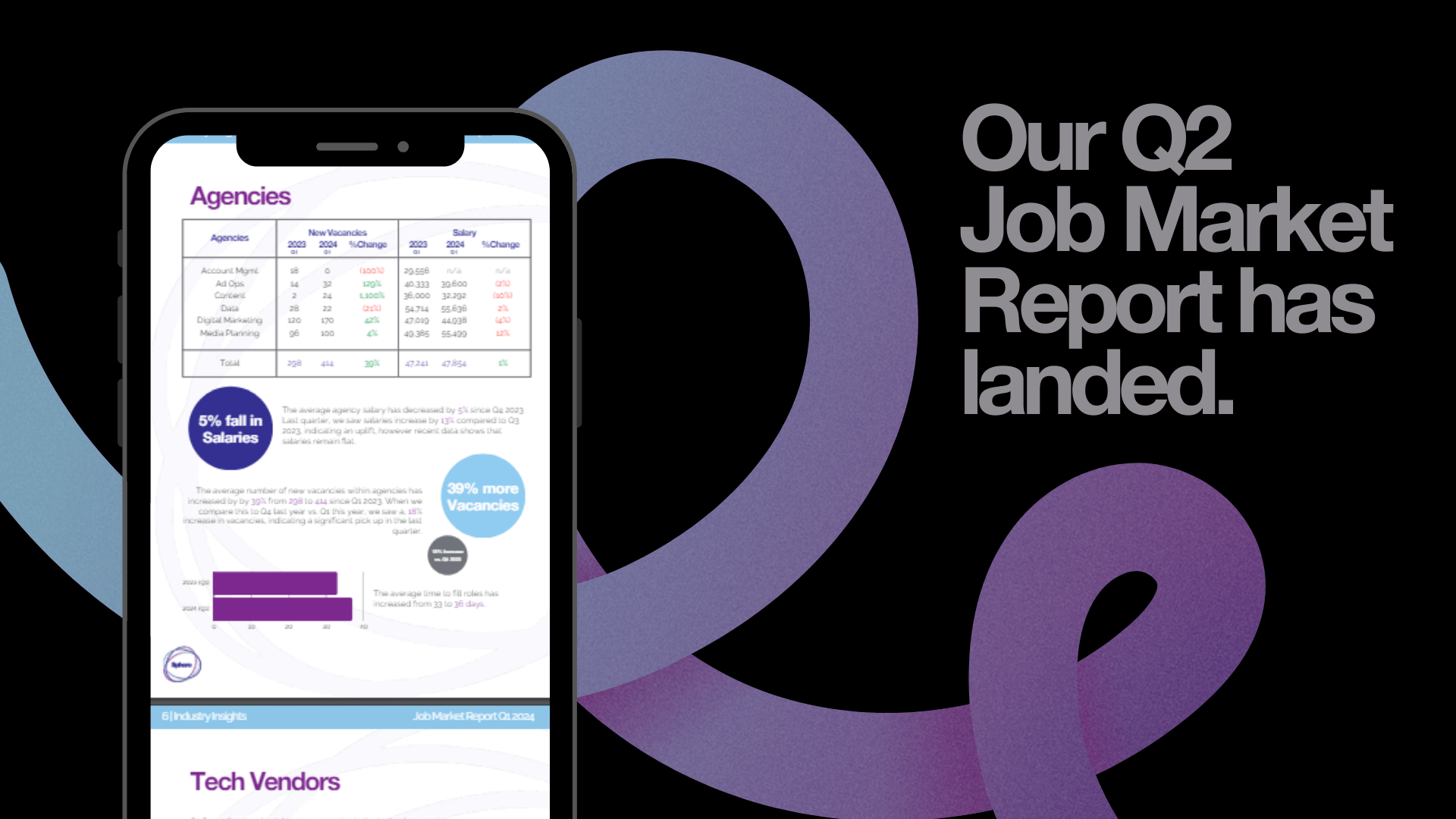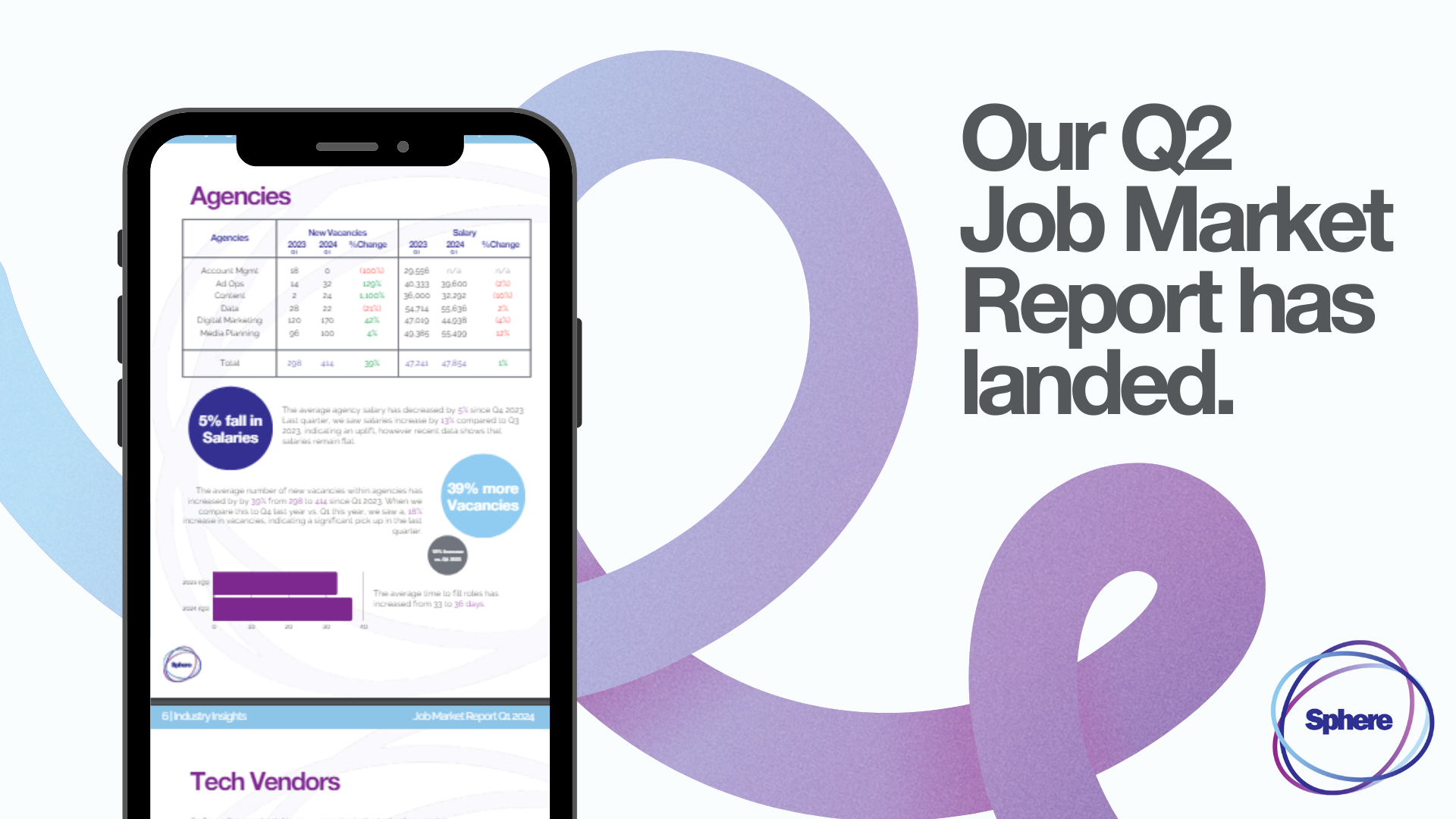
Product - Changes in Salaries and Benefits Packages 2021
22 Apr, 20215 minsAfter what can only be described as the most unpredictable year for most employers and emplo...

After what can only be described as the most unpredictable year for most employers and employees, looking back at 2020 certainly makes for good reading... The way that all the businesses and candidates that I have worked with have adapted and grown throughout this period is nothing short of astonishing.
Looking back on 2020, and having spoken to a number of my network, we have complied a huge amount of detail for those working in Product roles regarding the changes in salaries and benefits packages in order to be able to advise you on the year ahead.
Product is an ever-growing space with even more demand for top talent than ever, some of the key areas we highlighted were:
Gender Split
Product still remains a Male dominated specialism, but has evened out compared with 2019; 53% Male vs 47% Female in 2021, compared with 60% Male vs 40% Female in 2020.
That said, moving into 2021 I have noticed the increased level of female applicants, which inevitably will continue this trajectory of a more even split in the Product industry.
Bonus
Bonuses are commonplace among Product professionals and this has only increased over the last year - from 63% to 68%. Discretionary has overtaken performance or target-based bonuses as the most popular form of bonus; this is now at 58%, up from 39% in 2020.
Performance or target-based is now 26%, down 51%, and share or equity options has halved from 10% in 2020 to 5% in 2021.
Salary Satisfaction
Generally, having looked at all the data, the majority of the Product industry have incredible attractive packages and as such 11% are ‘very satisfied’ with their salary and 25% are ‘satisfied’.
Unfortunately, we did see a number of unhappy professionals with 18% ‘dissatisfied’ and 7% ‘very dissatisfied’ – I would imagine these are at the junior end of the market, as product remains to be one of those areas that salary levels increase with the more year of experience.
Challenges
Well it's safe to say that 2020 was full of challenges and it is no surprise that the top challenge for the industry was the 'Effects of the Covid Pandemic' (33%). Product is a space that requires a strong level of stake holder management and I can imagine working from home hindered the ability to manage cross functional teams and influence where needed.
Coming in second was the challenge of 'Company Growth' (30%), which in my opinion can only be seen as a positive, but understandably with the consolidation of most businesses this would inevitably increase workloads.
The third biggest challenge is Employee Skill Shortages and Brexit (both 27%).
Benefits Received vs Benefits Wanted
0% of respondents have more than 30 days’ or uncapped holiday; this is much lower than in 2020. That said, this is a benefit I am seeing more in contracts as we start to ease out of the year of the pandemic.
Flexible working was the most common benefit but also the most desired benefit amongst Product professionals, with an 18% difference in the number of people who wanted it versus the number who actually receive the benefit (up from 6% last year). I think we can all agree one of the benefits we have received from a year of working at home is the increased trust from employers to be able to accommodate more flexible working styles – I can only see this growing over the next year.
Unlimited annual leave and sabbatical/career break were also a highly desired benefit.
Why people working in Product left their last role
Why somebody left their last role is a question employers ask me regularly, and it’s a very open question, that said some of the candidate industry responses were the below :
- Lack of progression opportunities (31% up from 22% last year)
- Poor work environment / culture (28%)
- For better / increased pay (25%)
How people working in Product found their last role
Working in the Mid-Senior Product market, I have noticed more and more that these professionals are looking for support from a recruiter – it takes a real level of stress away (or is supposed too) from the prospective candidates and allows them the ability to be removed form what can be tricky conversations or negotiations. No surprise then that the top result was through a recruiter or head-hunter:
- Through a recruiter or head-hunter and LinkedIn (both 32%)
- Direct application and Job board (both 14%)
Top factors in job search
As with the majority of other specialisms, salary and bonus is considered the most important factor when considering a move, with two-thirds (68%) of respondents working in product management considering this as very important.
Interestingly, we have seen a shift in the importance of company culture from last year, from 3% stating that company culture was very unimportant in 2020, to only 4% considering this neither important or unimportant in 2021.
Those working in product management felt least strongly about their benefits package, training and development and career progression and rated these as neither important or unimportant at 7%, 21% and 11% respectively.
- Salary & Bonus (68%)
- Culture (61%)
- Progression (36%)







